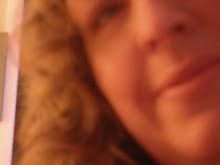And so that bit of true the person discovers, it shines. And then other people start recognising it too. Somewhere deep in themselves, the beautiful real vibrates to the beautiful real.
I think maybe something like that happened around Jesus (if he existed). His insights (or at least those ascribed to him) were profound (but not limited to him. He even said that himself, after all. We are all gods).
And then what happens in response to an instance of truth-spilling is that the powers that be, that have existed like parasites for at least as long as our grandparents-to-the-power-of-10 were alive, come along and try to snuff it out. It scares them because they believe that they already have the truth. And generally, those at the top of the pyramid don't want other people to cotton onto anything that might level the playing field out a bit. Human nature. Not necessarily the way the system has to play it out, though.
And so fast forward a few thousand years and in the place of some carpenter with profundity you've got rich old dudes with questionable morality whose institution sits upon a vast, vast fortune that has entrenched itself in place of that carpenter guy.
It's always the way. And between the start and the finish of that situation, everyday people are first empowered, but then silenced. Questioning is powerful, and so you must enforce the silence of the people by instilling fear. Tell them they're not as powerful as they really are. Question their motives. Tell them they're evil, or they're going to hell, or nobody will like them. Tell them that what they see is simply not possible because of prior evidence that you have amassed. Because everyday people asking questions change things. It has always been the way.
This silencing happens in every institution in which we allow it. Fundamentalism is not simply the province of religion. It is rife in the areas where it is hardest for us to see it happening. Like in the realm of science, for instance.
I don't know a whole lot about Rupert Sheldrake apart from what I have seen in this clip. He has been working in the scientific field for many years. I don't even know if his hypotheses about the 10 dogmas of science are necessarily correct. After all, despite evidence to the contrary, there are still plenty of open-minded scientists around. But whether the establishment is as open-minded as its components is perhaps another story.
And anyway, it's always good to question what we think we know. It's a fruitful space. And a humbling one, too.
What I do know is that discussion should always remain open, and that the things that are unknown to us are too often framed as evil or as pseudo-science by those who get to wear the pointy hats at the pointy end of whatever field they happen to be in. People should not be labelled as mavericks because they are evaluating, inspecting, analysing - to wit, being scientific to the best of their current ability - areas which have not in one way or the other been proven to be false. And their questioning should certainly not be allowed to be silenced by gatekeepers.
After all, the earth was once flat, women and gays were once second-class citizens, slaves were once simply a necessary by-product of existence, and indigenous people were heathens whose land was there for the taking.
Like the narrative in the Old Testament, where God is complaining about her people wanting a king, we still want to be told what to do. We want benevolent kings to tell us what to do, but there very rarely are benevolent kings, at least in the current climate. Humans do not seem to be able to handle the power we give them without it exploding into something disastrous. It is us who need to keep them in check. Just as it is religion's role for people to control themselves, not criticise others as the Dalai Lama says, it is humanity's role to learn to empower people to not need kings and priests to tell us what to do quite so hard, so often, and so unquestioningly.
It is surely time that humans stop being teenagers and start living in the middle of the now, with all of its ripe uncertainty. There is pungent fruit there, with spill-open seeds inside.




No comments
Post a Comment